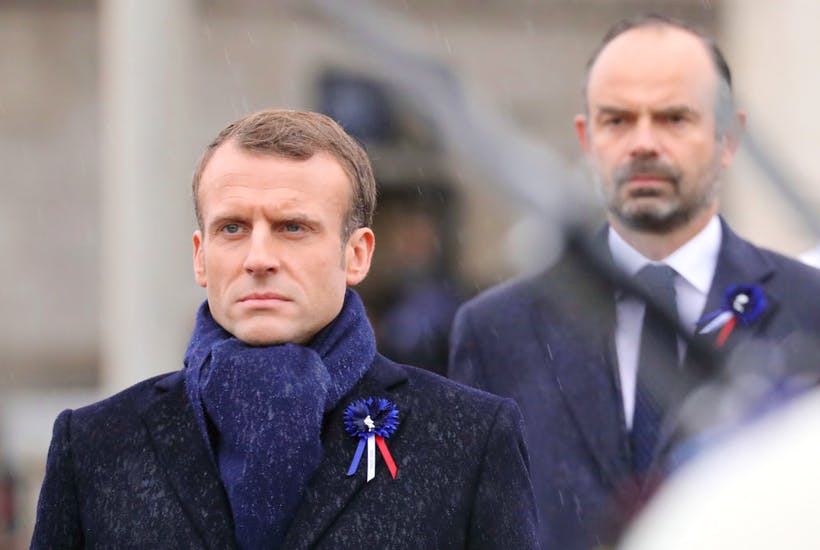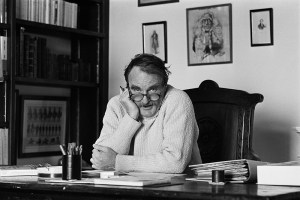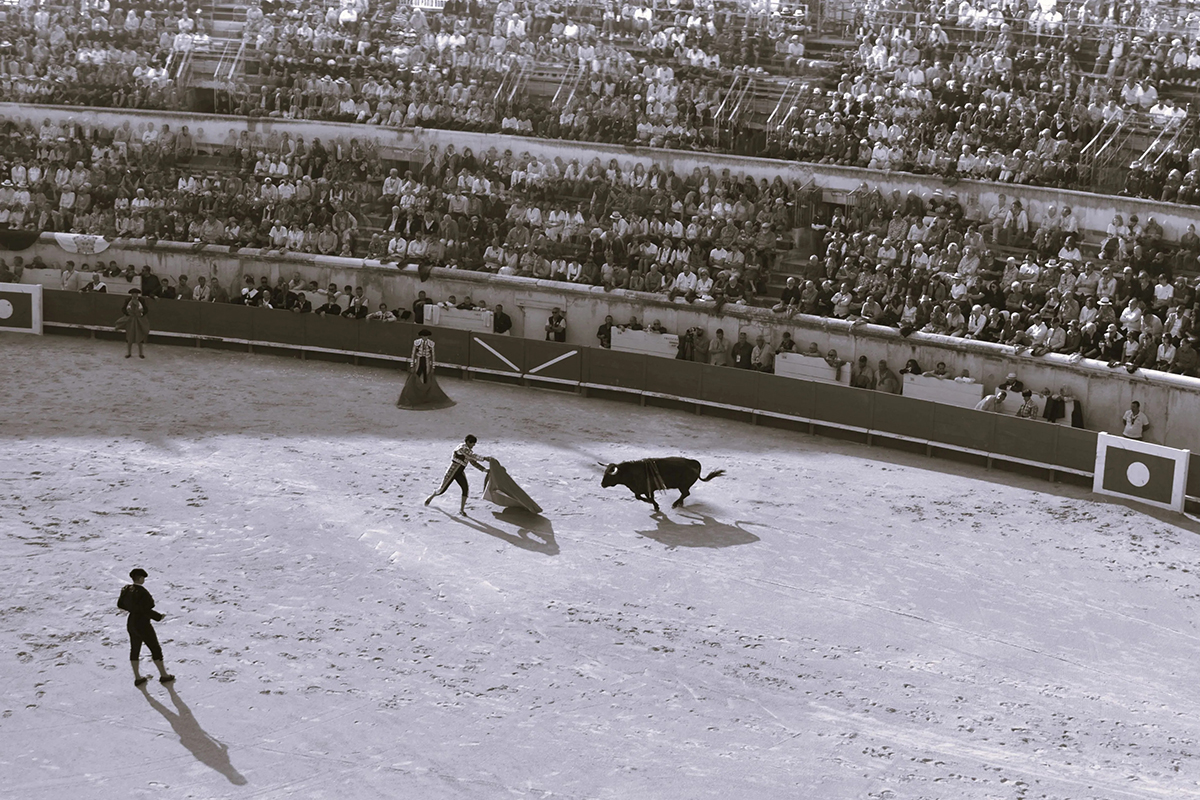It’s half-way through Emmanuel Macron’s five-year mandate and French voters are glancing over the menu, bored of the president’s promises. Everything they’ve come to dislike about Emmanuel Macron is being confirmed and contrasted by the taller man on his right. Yes, the most serious threat to Macron right now isn’t Marine Le Pen but the growing popularity of his prime minister.
This shouldn’t come as a surprise. Edouard Philippe is arguably France’s best PM in living memory. And cruelly, he’s all the things Macron isn’t. Unpretentious, understating and authentic, he’s a six-foot-four Northerner of sharp wit who goes boxing twice a week. A proud father of three, he learned real-life politics as mayor of Le Havre: a working-class city where his grandfather was a docker and his parents were school teachers. Through crises and reforms, the prime minister has proved such a sleeves-up, head-down man of action, he’s now enjoying a 41 percent approval rating – four points higher than Macron.
As the 2022 elections loom, Philippe is looking like the stronger candidate to take on Le Pen, then lead the charge into the legislative elections. But will Macron let him? Probably not. Which means that France is facing a situation that could easily pit Macron’s personal ambition against the national interest.
Since Macron’s crushing victories in 2017, there’s effectively been no functioning opposition. The centrist party he founded, La République En Marche (LREM) now controls parliament with a majority of 308 seats, having obliterated the outgoing Parti Socialiste government to 30 seats and truncated the conservative Les Republicains to 112. As for Le Pen, despite her heavyweight media status, she leads a party of just eight deputies.
But this virtual monopoly has actually cursed Macron’s presidency. The gilet jaune riots owe much to the absence of any meaningful opposition. Macron’s era suddenly felt like a one-party state of yuppie novices. His gasoline tax was the trigger, but working-class anger was already widespread over living costs, worsening poverty, rural decline and the feeling that politicians are cut off from reality.
Considering the size of Macron’s mandate, he was always going to be able to see out his term, no matter what got thrown at him. The same was true for Hollande and Sarkozy, who both completed their terms amid strikes, disillusionment and sinking polls. Such is France. But les gilets jaunes did succeed in altering the national conversation. The recent flood of obituaries and documentaries about Jacques Chirac further reminded French voters just how vital it is for presidents to genuinely like and understand ordinary people.
In May’s European elections, Macron lost center-left voters en masse to ecologists. Unlikely to return, they’re feeling betrayed by his solo run out of Hollande’s government. But thanks to Edouard Philippe, LREM actually gained new votes on the right and appear to be usurping Sarkozy’s old party, Les Républicains, who suffered a wipe out. Although fragmented, this Gaullist electorate remains France’s largest tribal group. And what these key voters find so refreshing about Philippe is that, unlike Macron, he’s not contorting his arguments into please-all sales pitches. The straighter talking prime minister is truly one of their own.
An authentic, center-right Gaullist, Edouard Philippe was a protégé of Alain Juppé, Bordeaux’s much admired conservative mayor, who was also one of Chirac’s most trusted prime ministers and friends. And it’s this pleasant mix of humanist, civic-mannered conservatism – a breed that many thought had died in the glitzy Sarkozy era, that’s even endearing Philippe to the disillusioned left.
Philippe is also one of them. As a student, he first joined the socialist party. Academically brilliant, he was then accepted into the ENA, France’s elite university that produces nearly all its presidents and CEOs. He practiced law, raised a family and was 40 by the time he migrated to the liberal wing of the Gaullist alliance – and even then, as someone serving his own city.
To legitimately reform a country as ungovernable as France, any contender will need to win both rounds of a presidential election and then win a parliamentary majority. Macron won everything once, but in the head-chopping traditions of Gallic politics, re-election is a notoriously tall and slippery mountain. In 80 years, only De Gaulle, Mitterrand and Chirac pulled it off. Even then, they did so in fairer economic weather.
Worryingly, Macron believes 2022 will be a simple re-run of his duel against Le-Pen. It’s a problematic assumption. The French have a saying for their two-round system: ‘In the first round, you vote with your heart. In the second round, you vote with your brain.’ And it’s that first round of the heart – traditionally a splintered celebration of convictions and chieftains, that’s going to terrify Macron’s colleagues. Unlike before, he’ll be weighed down by apathy, accusations, public lassitude and a right-wing preference for Edouard Philippe.
Le Pen has the opposite problem. She inherited a loyal base of around 18-22 percent, enough to sail her into the second round. However she is unlikely to ever win a majority. All she can realistically win is the highest score in the first round. She would probably still lose the run off. But as an opposition force, she could damage a sitting-duck presidency by claiming to be the people’s first choice in a rigged system. Such a messy scenario has never happened in the Fifth Republic. And it’s this threat that convinced Macron’s predecessor and mentor, François Hollande, not to run for re-election.
With two years on the clock, the fortunes of both president and prime minister will remain precariously interlocked. For now, neither can trip the other up without committing political suicide. But already an air of déjà vu is hanging over the Elysée. Is it Macron’s cruel destiny to suffer what he once inflicted on his own predecessor? Watch this space.
This article was originally published onThe Spectator’s UK website.


























